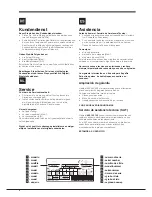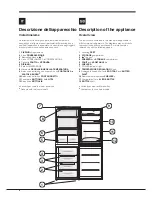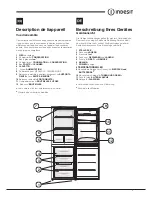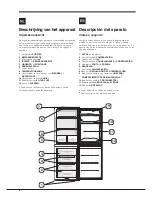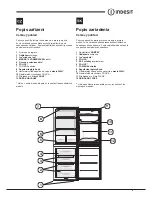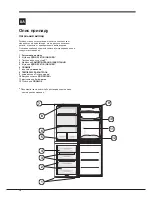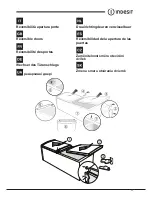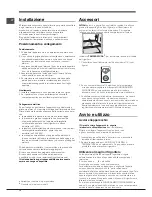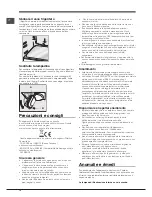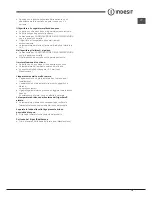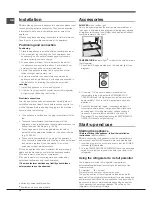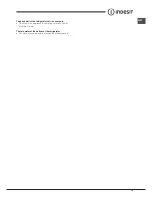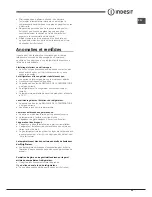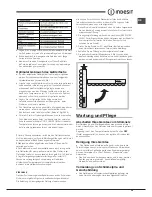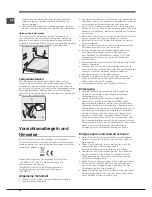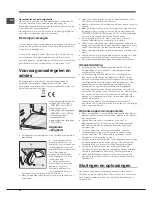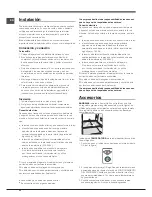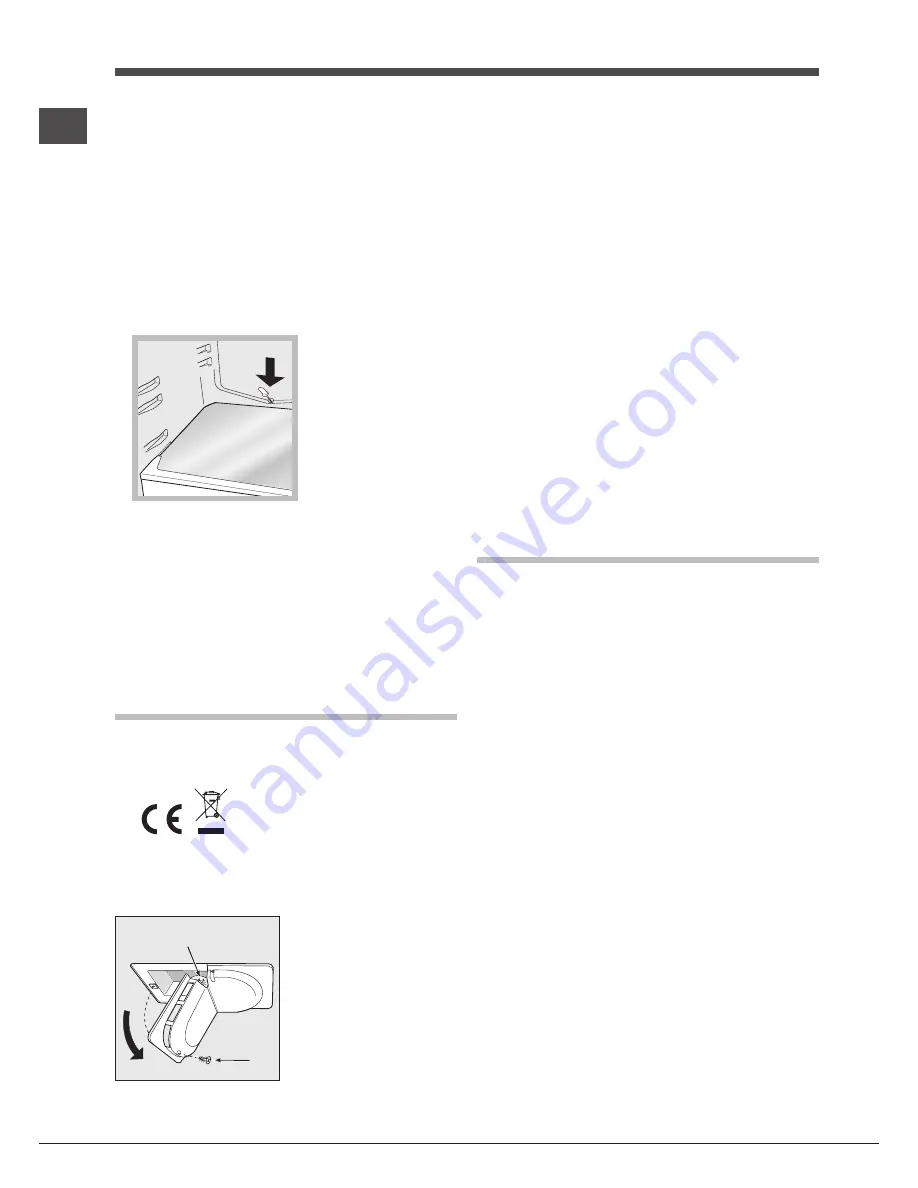
18
GB
Avoiding mould and unpleasant odours
• The appliance is manufactured with hygienic materials which
are odour free. In order to maintain an odour free refrigerator
and to prevent the formation of stains, food must always be
covered or sealed properly.
• If you want to switch the appliance off for an extended
period of time, clean the inside and leave the doors open.
Defrosting the refrigerator compartment
The refrigerator has an automatic defrosting function: water is
ducted to the back of the appliance by a special discharge outlet
(see diagram) where the heat produced by the compressor
causes it to evaporate.
It is necessary to clean the discharge hole regularly so that the
water can flow out easily.
Replacing the light bulb
To replace the light bulb in the refrigerator compartment, pull
out the plug from the electrical socket. Follow the instructions
below.
Access the light bulb (A) by unscrewing the fixing screw (B)
which is located at the back of the lampcover, as shown (see
diagram). Replace it with a similar light bulb, the power of
which should not exceed 15W.
Precautions and tips
!
The appliance was designed and manufactured in
compliance with international safety standards. The following
warnings are provided for safety reasons and must be read
carefully.
This appliance complies with the following Community
Directives:
- 73/23/EEC of 19/02/73 (Low Voltage) and subsequent
amendments;
-89/336/EEC of 03.05.89
(Electromagnetic
Compatibility) and
subsequent amendments;
- 2002/96/CE..
General safety
• The appliance was
designed for domestic use
inside the home and is not
intended for commercial or
industrial use.
• The appliance must be
used to store and freeze food products by adults only and
according to the instructions in this manual.
• The appliance must not be installed outdoors, even in
covered areas. It is extremely dangerous to leave the
appliance exposed to rain and storms.
• Do not touch the appliance with bare feet or with wet or
moist hands and feet.
• Do not touch the internal cooling elements: this could cause
skin abrasions or frost/freezer burns.
• When unplugging the appliance always pull the plug from
the mains socket, do not pull on the cable.
• Before cleaning and maintenance, always switch off the
appliance and disconnect it from the electrical supply. It is
not sufficient to set the temperature adjustment knobs on
OFF (appliance off) to eliminate all electrical contact.
• In the case of a malfunction, under no circumstances should
you attempt to repair the appliance yourself. Repairs carried
out by inexperienced persons may cause injury or further
malfunctioning of the appliance.
• Do not use any sharp or pointed utensils or electrical
equipment - other than the type recommended by the
manufacturer - inside the frozen food storage compartments.
• Do not put ice cubes taken directly from the freezer into your
mouth.
• Do not allow children to tamper with the controls or play
with the appliance. Under no circumstance should they be
allowed to sit on the bins or to hang from the door.
• Keep packaging material out of the reach of children! It can
become a choking or suffocation hazard.
Troubleshooting
The internal light does not illuminate.
• The plug has not been inserted into the electrical socket, or
not far enough to make contact, or there is no power in the
house.
The refrigerator and the freezer do not cool well.
• The doors do not close properly or the seals are damaged.
• The doors are opened too frequently.
• The TEMPERATURE ADJUSTMENT knob is not in the correct
position
• The refrigerator or the freezer have been over-filled.
• The atmospheric temperature of the area surrounding the
appliance is lower than 14°C.
The food inside the refrigerator is beginning to freeze.
• The TEMPERATURE ADJUSTMENT knob is not in the correct
position.
• The food is in contact with the back inside wall of the
refrigerator.
The motor runs continuously.
• The door is not closed properly or is continuously opened.
• The outside ambient temperature is very high.
• The thickness of the frost exceeds 2-3 mm (see
Maintenance).
The appliance makes a lot of noise.
• The appliance has not been installed on a level surface (see
Installation).
• The appliance has been installed between cabinets that
vibrate and make noise.
• The internal refrigerant makes a slight noise even when the
compressor is off. This is not a defect, it is normal.
Some of the external parts of the refrigerator become hot.
• These raised temperatures are necessary in order to
avoid the formation of condensation on certain parts of the
product.
A
B

